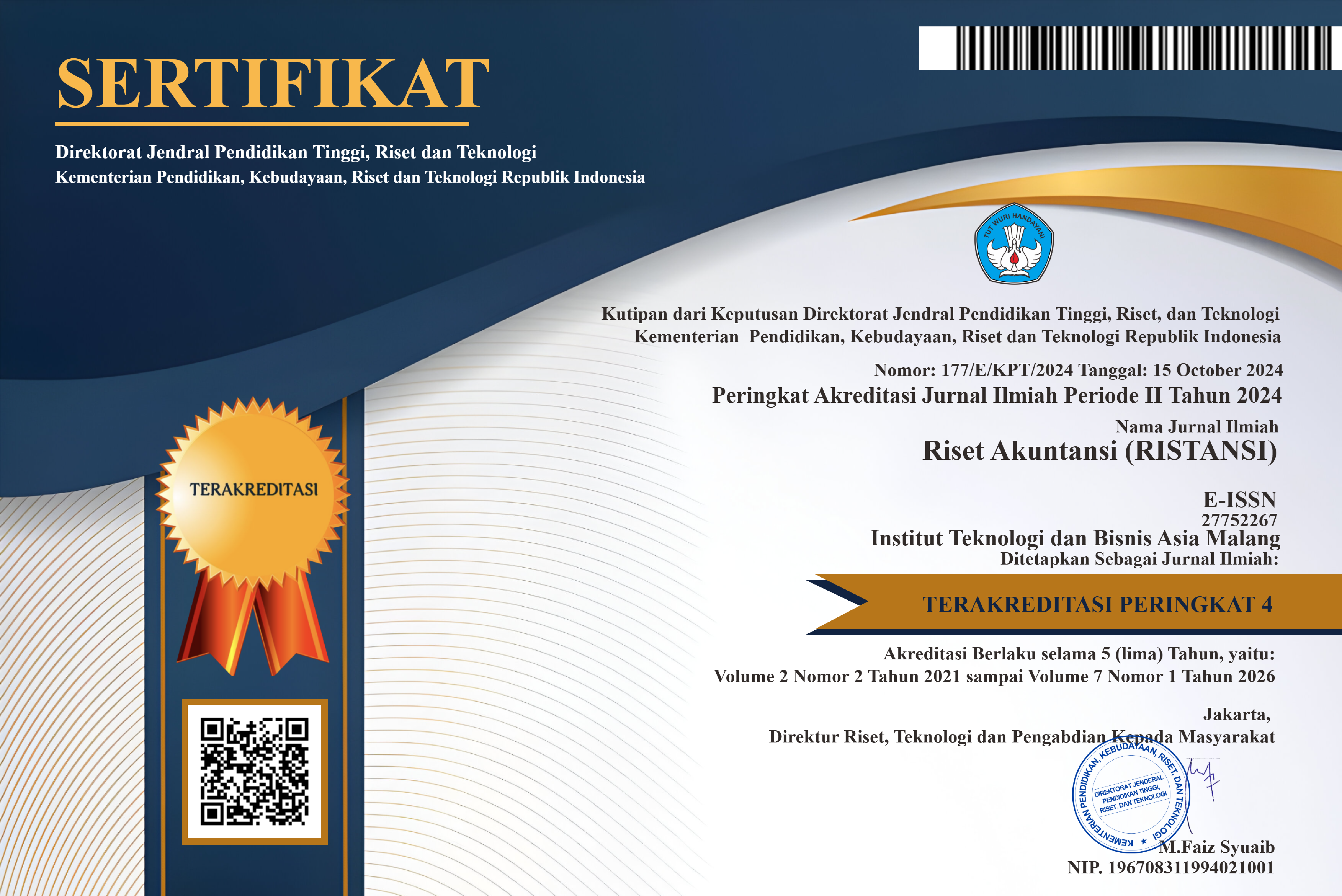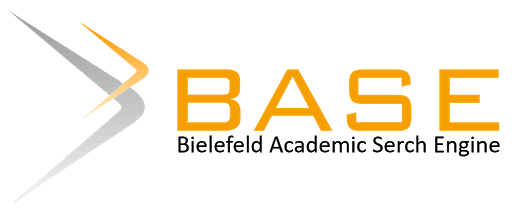ANALISIS PENGUATAN EKONOMI HALAL SEBAGAI PILAR UTAMA DALAM PENINGKATAN KINERJA UKM SEKTOR HALAL
DOI:
https://doi.org/10.32815/ristansi.v6i1.2689Keywords:
Halal, SMEs, Ecosystem, Islamic EconomyAbstract
This study aims to analyze the factors influencing halal sector SMEs in Indonesia in adopting halal certification, as well as to formulate strategies for strengthening the halal ecosystem. A purposive sampling technique was used to select 120 halal SMEs in Malang City as the sample. A mixed-methods approach was employed, combining Structural Equation Modeling-Partial Least Squares (SEM-PLS) to examine SME owners' behavior toward halal certification and Analytic Network Process (ANP) to develop strategies for strengthening the halal ecosystem. The findings indicate that understanding business value chains and applying subjective Islamic standards play a crucial role in driving the halal certification process. However, there remains room for improvement, particularly in education and understanding of the certification process. The study concludes that enhancing literacy and implementing adaptive policies that respond to SME needs are essential to strengthening and developing a sustainable halal economic ecosystem in Indonesia.
References
Afendi, A. (2020). The Effect of Halal Certification, Halal Awareness and Product Knowledge on Purchase Decisions for Halal Fashion Products. Journal of Digital Marketing and Halal Industry, 2(2), 145–154. https://doi.org/10.21580/jdmhi.2020.2.2.6160
Ahmad Tarmizi, H., Kamarulzaman, N. H., Abd Rahman, A., & Atan, R. (2020). Adoption of internet of things among Malaysian halal agro-food SMEs and its challenges. Food Research, 4(S1), 256–265. https://doi.org/10.26656/fr.2017.4(S1).S26
Alabi, A. T., & Jelili, M. O. (2023). Clarifying likert scale misconceptions for improved application in urban studies. Quality & Quantity, 57(2), 1337–1350.
Al-Teinaz, Y. R., & Al-Mazeedi, H. M. (2020). Al‐Teinaz, Y. R., & Al‐Mazeedi, H. M. M. (2020). Halal certification and international Halal standards. The Halal Food Handbook, 271–251.
Amalia, M. A., Pribadi, P., & Hapsari, W. S. (2022). Empirical Test of Pharmacy Staff-Patient Relationship Quality Model in Public Health Center: Structural Equation Modeling-Partial Least Square Approach. JPSCR: Journal of Pharmaceutical Science and Clinical Research, 7(2), 122. https://doi.org/10.20961/jpscr.v7i2.52010
Amundsen, V. S., & Osmundsen, T. C. (2020). Becoming certified, becoming sustainable? Improvements from aquaculture certification schemes as experienced by those certified. Marine Policy, 119, 104097. https://doi.org/10.1016/j.marpol.2020.104097
Aslan, H. (2023). The influence of halal awareness, halal certificate, subjective norms, perceived behavioral control, attitude and trust on purchase intention of culinary products among Muslim costumers in Turkey. International Journal of Gastronomy and Food Science, 32(100726).
Aswad, M., Asiyah, B. N., Hidayati, A. N., & Huda, Q. (2024). Marketing Strategy For Halal Msmes In Tulungagung District: Using The Anp Method Approach. (2).
Basarud-din, S. K., Saad, R. A. J., Tunku Puteri Intan Safinaz School of Accountancy, Universiti Utara Malaysia, Malaysia, & Aminullah, A. A. (2022). Malaysian Halal Certification: A Study of Compliance Behavior of Muslim Entrepreneurs. Global Journal al Thaqafah, 12(2), 46–65. https://doi.org/10.7187/GJAT122022-4
BPS. (2023). Phenomena that affect the adoption of halal certification among SMEs. 2023.
Calder, R. (2020). Halalization: Religious Product Certification in Secular Markets. Sociological Theory, 38(4), 334–361. https://doi.org/10.1177/0735275120973248
Darmalaksana, W. (2023). How is the halal certification policy implemented? Perspective analysis of small and medium enterprises (SMEs) in Indonesia. Journal of Islamic Accounting and Business Research.
Dawam, K., & Iswandi, A. (2023). Analysis of The Factors That Influence The Perceptions of Culinary Business Owners Regarding Intention to Register For Halal Certificates. Perisai : Islamic Banking and Finance Journal, 7(2), 143–176. https://doi.org/10.21070/perisai.v7i2.1663
Fithri, P., Hasan, A., Syafrizal, S., & Games, D. (2024). Validation Studies a Questionnaire Developed to Measure Incubator Business Technology Performance using PLS-SEM Approach. Andalasian International Journal of Applied Science, Engineering and Technology, 4(1), 64–78. https://doi.org/10.25077/aijaset.v4i1.132
Fuadi, N. F. Z., Bukhari, B., & Firdiyanti, S. I. (2022). Halal Marketplace: The Influence of Attitude, Subjective Norms, and Perceived Behavior Control on Purchase Intention of Muslim Consumers. Shirkah: Journal of Economics and Business, 7(1), 100–112. https://doi.org/10.22515/shirkah.v7i1.451
Giannakis, M., Dubey, R., Vlachos, I., & Ju, Y. (2020). Supplier sustainability performance evaluation using the analytic network process. Journal of Cleaner Production, 247, 119439. https://doi.org/10.1016/j.jclepro.2019.119439
Giyanti, I., Indrasari, A., Sutopo, W., & Liquiddanu, E. (2021). Halal standard implementation in food manufacturing SMEs: Its drivers and impact on performance. Journal of Islamic Marketing, 12(8), 1577–1602. https://doi.org/10.1108/JIMA-11-2019-0243
Hair, J. F., Hult, G. T. M., Ringle, C. M., Sarstedt, M., Danks, N. P., & Ray, S. (2021). Partial Least Squares Structural Equation Modeling (PLS-SEM) Using R: Workbook (Class Companion: Business). 2021.
Handriana, T., Yulianti, P., Kurniawati, M., Arina, N. A., Aisyah, R. A., Ayu Aryani, M. G., & Wandira, R. K. (2021). Purchase behavior of millennial female generation on Halal cosmetic products. Journal of Islamic Marketing, 12(7), 1295–1315. https://doi.org/10.1108/JIMA-11-2019-0235
Hasan, M. R., & Abd Latif, M. S. (2024). Towards a Holistic Halal Certification Self-Declare System: An Analysis of Maqasid al-Sharīʿah-Based Approaches in Indonesia and Malaysia. Mazahib, 23(1), 41–78. https://doi.org/10.21093/mj.v23i1.6529
Hidayati, N., & Sunaryo, H. (2021). The Role of Halal Label to Increase the Effect of Attitude Toward Halal Product on Brand Image and Purchase Intention. IJEBD (International Journal of Entrepreneurship and Business Development), 4(5), 744–752. https://doi.org/10.29138/ijebd.v4i5.1496
Kalkbrenner, M. T. (2023). Alpha, Omega, and H Internal Consistency Reliability Estimates: Reviewing These Options and When to Use Them. Counseling Outcome Research and Evaluation, 14(1), 77–88. https://doi.org/10.1080/21501378.2021.1940118
Latif, M. A. (2020). Halal international standards and certification. The halal food handbook,.
Mahsun, M., Putra, Y. H. S., Asnawi, N., Djalaluddin, A., & Hasib, N. (2023). Blockchain as a Reinforcement for Traceability of Indonesian Halal Food Information through the Value Chain Analysis Framework. AL-Muqayyad, 6(1), 49–66. https://doi.org/10.46963/jam.v6i1.1031
Mas’ad, M. A. (2020). Halal Industry And Islamic Finance Institution’s Role: Issues And Challenges. 3.
Masruroh, N., & Mahendra, M. K. E. (2022). The Relationship Of Religiosity, Producer’s Knowledge, and Understanding Of Halal Products to Halal Certification. EKONOMIKA SYARIAH : Journal of Economic Studies, 6(2), 189. https://doi.org/10.30983/es.v6i2.5179
Md Nawi, N. H., Megat Ahmad, P. H., Ibrahim, H., & Mohd Suki, N. (2023). Firms’ commitment to Halal standard practices in the food sector: Impact of knowledge and attitude. Journal of Islamic Marketing, 14(5), 1260–1275. https://doi.org/10.1108/JIMA-10-2021-0333
Mohamed, Y. H., Abdul Rahim, A. R., & Ma’aram, A. (2020). The effect of halal supply chain management on halal integrity assurance for the food industry in Malaysia. Journal of Islamic Marketing, 12(9), 1734–1750. https://doi.org/10.1108/JIMA-12-2018-0240
Nur Kasanah & Rosita Novi Andari. (2024). Sehati Program: A Flexible Model For Effective Halal Certification. Harmoni, 23(1), 122–145. https://doi.org/10.32488/harmoni.v23i1.706
Öztürk, A. (2022). The Effect of Halal Product Knowledge, Halal Awareness, Perceived Psychological Risk and Halal Product Attitude on Purchasing Intention. Business and Economics Research Journal, 13(1), 127–141. https://doi.org/10.20409/berj.2022.365
Ridwan, A. H., Hasanuddin, M., Fatahillah, I. A., & Fauzia, I. (2020). Authorization Of Halal Certification In Indonesia, Malaysia And Singapore. 24(08).
Santoso, S., Alfarisah, S., Fatmawati, A. A., & Ubaidillah, R. (2021). Correlation Analysis of the Halal Certification Process and Perceptions of the Cost of Halal Certification with the Intentions of Food and Beverage SMEs Actors. Religious: Jurnal Studi Agama-Agama Dan Lintas Budaya, 5(2), 297–308. https://doi.org/10.15575/rjsalb.v5i2.11627
Silalahi, S. A. F., Fachrurazi, F., & Fahham, A. M. (2022). Factors affecting intention to adopt halal practices: Case study of Indonesian small and medium enterprises. Journal of Islamic Marketing, 13(6), 1244–1263. https://doi.org/10.1108/JIMA-05-2020-0152
Sudarmiatin, S., Khoirul Anam, F., & Wafaretta, V. (2020). The Intention of Halal Certification by Micro Business. KnE Social Sciences. https://doi.org/10.18502/kss.v4i9.7322
Supriyadi, S., Aulia, R., Nubahai, L., Rahman, R. A., & Mohamed, R. (2024). Legal Effectiveness of Halal Product Certification in Improving Business Economics in Indonesia and Malaysia. Al-Ahkam, 34(1), 193–220. https://doi.org/10.21580/ahkam.2024.34.1.20546
Vanany, I., Hua Tan, K., Siswanto, N., Arvitrida, N. I., & Pahlawan, F. M. (2021). Halal six sigma framework for defects reduction. Journal of Islamic Marketing, 12(4), 776–793. https://doi.org/10.1108/JIMA-11-2019-0232
Wiyono, S. N., Deliana, Y., Wulandari, E., & Kamarulzaman, N. H. (2022). The Embodiment of Muslim Intention Elements in Buying Halal Food Products: A Literature Review. Sustainability, 14(20), 13163. https://doi.org/10.3390/su142013163
Yazid, F., Kamello, T., Nasution, Y., & Ikhsan, E. (2020). Strengthening Sharia Economy Through Halal Industry Development in Indonesia. Proceedings of the International Conference on Law, Governance and Islamic Society (ICOLGIS 2019). Presented at the International Conference on Law, Governance and Islamic Society (ICOLGIS 2019), Banda Aceh, Indonesia. Banda Aceh, Indonesia: Atlantis Press. https://doi.org/10.2991/assehr.k.200306.187
Yusuf, M. Y., Djakfar, I., Isnaliana, & Maulana, H. (2021). Halal Tourism to Promote Community’s Economic Growth: A Model for Aceh, Indonesia. Pertanika Journal of Social Sciences and Humanities, 29(4), 2869–2891. https://doi.org/10.47836/pjssh.29.4.42
Zulfa, E. A., Ismail, T. Q., Hayatullah, I. K., & Fitriana, A. (2023). Regulation and law enforcement on the protection of halal products in Indonesia. Cogent Social Sciences, 9(2), 2273344. https://doi.org/10.1080/23311886.2023.2273344
Downloads
Published
How to Cite
Issue
Section
License
Copyright (c) 2025 Justita Dura, Mohammad Bukhori, Nabila Octaviola Rosanti

This work is licensed under a Creative Commons Attribution 4.0 International License.














